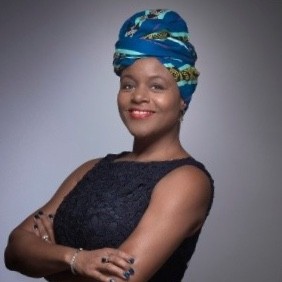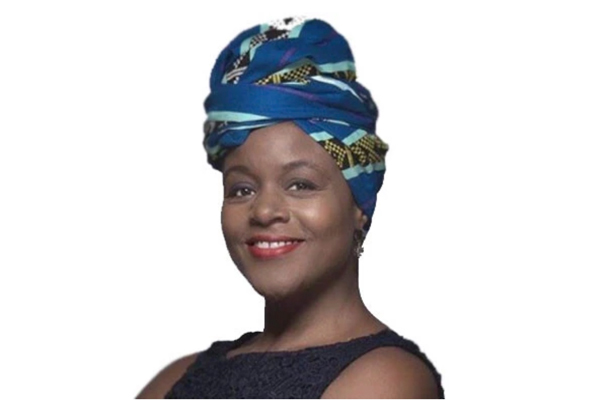In this exclusive interview, Fair Play Talks to equality champion Viola Llewellyn about her passion for creating equality and inclusion in Africa’s FinTech sector.
Llewellyn is the Co-founder of Ovamba, a company that’s pioneering FinTech and TradeTech innovation for African businesses; and is passionate about shaking up a system that has left many cultures out of investment opportunities due to a lack of education and understanding. She reveals her personal battles with racial discrimination, and what the experience taught her about inclusion in the workplace.
FAIR PLAY TALKS: Given your passion for inclusion, what more needs to be done to tackle workplace discrimination?
Viola Llewellyn: I think the first thing we need to do – and it’s a dangerous thing because it’s what caused the problem in the first place – is to get rid of politically correct language. This goes right back to cultural authenticity. It’s difficult to be truthful about what you think, what you feel and who you are if laws are set up to eliminate a lot of the cross language that creates problems.
The way questions are asked on application forms can lead systems down the wrong path. Financial inclusion and inclusion in the workplace needs to start with an environment for honesty without the penalty of being judged for it. So if, let’s say somebody is queer, but you’re working in an organisation that may have financial ties to a religious group, unfortunately you could find yourself left out of job roles. There needs to be a way in which your performance is good enough and not who you are and what you think.
I’ll give you an example. Many years ago, in the eighties, I went for a job interview. I was one of two people who was offered the job. As I was signing the documentation, the owner of the company, said, ‘I don’t like your kind’. I was shocked; and I asked ‘What do you mean?’ He said, ‘I don’t like Black people’. I asked, ‘Why are you telling me this? You’ve offered me the job!’ He replied, ‘Because I want the best person for the job; but I don’t want your performance affected when I don’t ask how your weekend was; or how you’re doing as a person. And I’m letting you know this up front to give you the choice if you still want to work for me.’ That was one of the best working relationships I ever had.
Now there will be some in today’s politically correct world saying, ‘well, that’s terrible’. Yes, but you know what, it was his business. He’s free to think what he wants; I don’t necessarily have to engage with him. But because I’ve had that experience, I know what it means to make a workplace work for me. I also realised, as a Black female, that the success of my role with him meant that maybe other Black people will get employed. So, when it comes to the workplace, inclusion and fairness come in so many different packages; it’s up to you to decide how to pull that value.
FAIR PLAY TALKS: Why is it important to tailor business and financial strategies to different cultures?
Viola Llewellyn: I think it creates a better, longer runway to go from a small to medium to large business. It gives authenticity to the business ecosystem because the ecosystem sometimes sits separately from the entrepreneur or the business; and within the African context, especially within trade, individuals are companies. They’re sole traders, especially women.
In a world where the gender lens has become way more important than it ever was before to understand women in a cultural setting where marriage is set up in a particular way; why is there not a pathway that defines the world for her? Africans often have to step outside of authenticity and do what we call code switching in order to operate globally; and then become something else when they return across the border. That is not a successful way to live as a human being; and there should be a way in which finance, trade, digital enablement can create a better life experience.

FAIR PLAY TALKS: How has the digital revolution improved the financial industries’ understanding of diverse cultures?
Viola Llewellyn: I think we will move away from conversations about ‘market segment’ to AI that can specifically pick the human being and what they need and want, both in the present and the future; or match them up to services on a self-serve basis that is truly intuitive.
I don’t think that we will notice the difference between digital engagement and analogue; human to human engagement. It will be a case of the more you get involved in these systems and the more educated as a consumer you are; the more savvy you become. When you have an educated consumer, you’ve got better growth, even during these pits and troughs, as we’ve seen with things like Covid or whatever next pandemic is coming; and it will come.
FAIR PLAY TALKS: What are your predictions for the future of FinTech?
Viola Llewellyn: “My answer changes depending on the current economic climate. I always look at the world through the lens of trade and manufacturing, and I think that the future of FinTech will wrap itself around these industries. Then the key marker will be when we start to see secondary markets evolve from these areas. At the moment, Ovamba is very focused on how we can use digital footprints to look at the world from the standpoint of the Caribbeans, African Americans and Africans.
This is a triangle that was once living in infamy under the rule of slavery; but today is actually an economic pathway to wealth creation, using digital products, capital and the buying and selling of goods. In the future, we will see a world where equity will be better addressed; because distribution of wealth will be done in such a way that people can help themselves; and not wait to be rescued. I see FinTech as a great resolver of challenges in our business world.
FAIR PLAY TALKS: What advice would you give to today’s younger generations?
Viola Llewellyn: Keep going. There were so many times I stopped, afraid or concerned and thought, ‘Well, maybe I shouldn’t do this’. It’s like climbing too high; you’re closer to the top than you are to the bottom, but you don’t want to fall. I would tell myself, keep going. There were too many times I stopped from fear; a lack of confidence or because people said, ‘Oh, you’re going to fail’. No, just keep going.
MORE ABOUT VIOLA LLEWELLYN
Viola Llewellyn is highly regarded in the finance and technology sectors for her multicultural approach to investing. Her company, Ovamba, which she co-founded in 2013, specialises in creating financial opportunities for African businesses; through digital transformation and risk management. With many financial models catering to western cultures, Llewellyn is on a mission to change the status quo. As a speaker, her topics discuss the importance of inclusion and how businesses can cultivate a fairer workplace culture. With her innovative approach to problem solving and eye on the future of FinTech, Llewellyn’s practical guidance equips audiences with the knowledge needed to champion change in their own industries. As the co-founder of Ovamba, a FinTech company that drives sustainable growth for under-represented African business, she is a champion of equality. Her corporate speeches combine her knowledge of finance with a passion for inclusion to transform audience perceptions. Click here for more information.
DIVERSITY CHAMPIONS
Check out our Movers & Shakers section, for more interviews with diversity champions. For example, read our recent interview with Hannah Chukwu, Assistant Editor at Penguin Random House UK, who talks about the challenges and opportunities for Black people and minorities in the publishing industry; and shares her passion for championing the voices of underrepresented authors worldwide.
Also check out our recent interview with Canada’s diversity champion Jessica Lui about untapping the potential of Generation Z and other under-represented groups here.






































